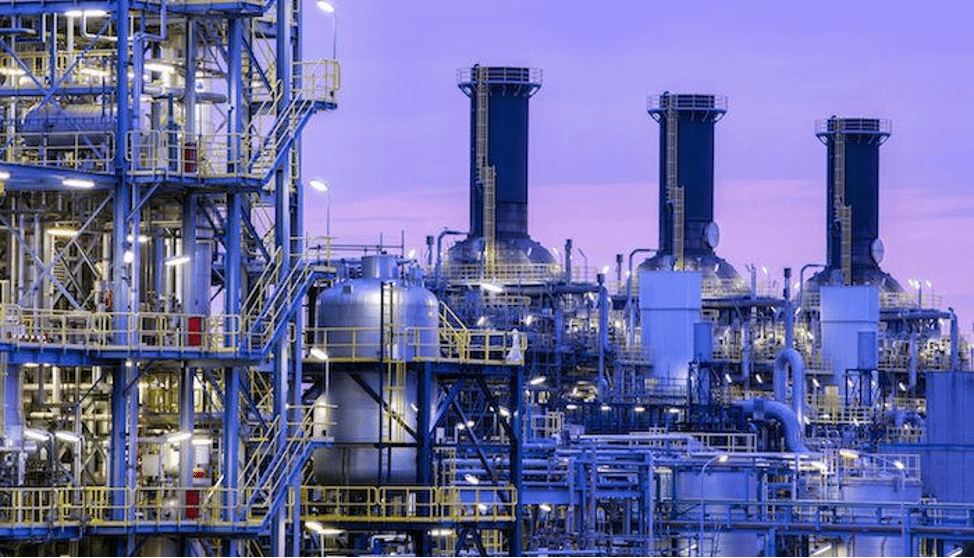Many industries would fall without petrochemical and petroleum energy production. These substances are part of the fabric of society. Petrochemicals are chemical substances that rely on crude oil and natural gases. Global economies and industries depend heavily on petrochemicals due to their importance in today’s world. This article will explore petrochemical and petroleum energy production and why many industries would fall without it.
Industries that rely mainly on Petrochemicals
Petrochemicals are used in a wide range of industries. Petrochemical materials have significant applications in automotive, medical, packaging, household goods, paints, clothing, building materials, and cosmetics, just to name a few.
Essentially, the industries and products that rely mainly on petrochemicals are packaging (28% of output), electronics (19%), construction (14%), automobiles (12%), and a range of other related sectors (27%).
Most surprising Industries that need petrochemical products
Some of the surprising industries that need petrochemical products include:
- Food: Many fertilizers used in food contain petrochemicals for preservation and coloring.
- Food packaging: Petrochemicals are used to make plastic wraps like Styrofoam.
- Beauty products: Many skin-enhancing creams and moisturizers are made of petrochemicals. Petrochemicals are also found in lotions, shampoo, shaving foam, and lipstick, to name a few.
- Compact discs: To help remove all impurities, the surface of compact discs is washed and soaked in petrochemicals.
- Balloons: The stretch from balloon rubbers is possible because of petrochemicals.
- Sunglasses: Many plastic frames used for sunglasses are produced using petrochemicals.
- Crayons: The vibrant colors of crayons are possible thanks to petrochemicals.
List of the most well-known Egyptian companies in producing petroleum and petrochemicals
Anchorage Investments is one of the top and most well-known Egyptian companies producing petroleum and petrochemical products. Founded and managed by Dr. Ahmed Moharram, Anchorage Investments comprises separate entities in the development of petrochemical projects. Moharram overseas Anchorage’s local and international projects through a well-established synergy between the entities.
Other well-known companies include the Egyptian Natural Gas Company, Egyptian General Petroleum Corporation, and the Egyptian Refining Company.
What are the top 15 petrochemical markets?
The basic petrochemical markets can be grouped into Latin America, North America, Europe, the Middle East & Africa, and Asia-Pacific.
Looking at the market cap of some of the top petrochemical companies globally, we can deduct that the top 15 petrochemical markets include Egypt, Saudi Arabia, Norway, the United States, China, the United Kingdom, the United Arab Emirates, France, Russia, Germany, Canada, Brazil, India, Qatar, South Korea.
Can the world produce the petrochemicals it needs without oil?
It is challenging to produce petrochemicals without oil due to its manufacturing process. However, some strategies remain possible.
Producing petrochemicals without using fossil fuels can be accomplished in three basic ways: utilizing plant materials, reusing plastics, or through direct carbon dioxide and water creation. Of these, it’s turning out to be progressively evident that the immediate creation strategy can guarantee zero or negative lifecycle.
Which is the largest petrochemical industry in the world?

Depending on the resources and technology available, domestic market characteristics, and environmental standards of the region, each region has developed its petrochemical feedstock specificities. In 2021, naphtha remained the biggest volume petrochemical feedstock utilized worldwide, trailed by flammable gas, coal, and ethane. The biggest markets of petrochemical feedstocks are North East Asia (to a great extent, the central area of China), North America (generally the US), the Middle East, the CIS and the Baltic States, and Western Europe.
In the last Q. of 2023, What are the current and expected numbers for the petrochemical industry?
In 2022, the global petrochemical industry was valued at US$ 501.2 Bn. Let us see the market value in the first quarter of 2023.
In a report conducted by the International Energy Association, some highlights of the current state and predicted outcomes of the petrochemical industry include:
- World oil demand will increase by 2.4 mb/d in 2023 to 102.3 mb/d, another record. China’s rebound remains unabated, with its oil demand arriving at a record-breaking high of 16.3 mb/d in April.
- In May, world oil supply fell by 660 kb/d to 100.6 mb/d after additional cuts from some OPEC+ makers kicked in.
- Russian oil exports dropped by 260 kb/d in May to 7.8 mb/d, to a great extent unaltered from a year prior. Unrefined petroleum trades rose by 90 kb/d to 5.2 mb/d, while exports dropped by 350 kb/d to 2.6 mb/d. China and India represented somewhere around 56% of absolute Russian products, while shipments to Africa, the Center East, and Latin America made up another 12%.
Current Petrochemical trends
According to a report conducted by Deloitte, petrochemical, crude oil, and natural gas market prices will continue to be a defining factor of global market and commodity prices. Generally, petrochemical industry trends are affected by the automotive and oil and gas sectors.
-
Governmental trends
The Middle East and China are shaping the petrochemical industry’s future. The Saudi government, for example, is pushing for a more critical presence in the petrochemical industry to reduce its dependence on foreign suppliers for petroleum. Thus, the cost of diesel has shot up, and the cost differential between diesel and gas has expanded, with fuel costs contacting an extraordinary failure.
-
Ethylene and propylene growth
Demand for ethylene and propylene has increased throughout recent years, and worldwide petrochemical and integrated oil-and-gas players have attempted to add new ability to keep up. For instance, Ethylene capacity usage rates have passed the 90% imprint. The change to lighter substance feedstocks in the past five to ten years has likewise influenced the creation of C4 synthetic compounds and aromatics (like benzene, paraxylene, and butadiene).
To conclude, many industries fall without petrochemicals. Petrochemical and petroleum energy production are crucial in today’s societies. These sectors are essential to pay attention to. Future expectations claim the petrochemical sector is set to grow further.
Petrochemical leaders like Anchorage Investments, founded by Dr Ahmed Moharram, produce petrochemical products locally and advance the Egyptian market’s position globally.
